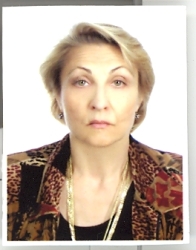
In an interesting interview, Irina Filatova, a professor of African history at the National Research University-Higher School of Economics (HSE), offers her thoughts about the continued importance of de-Stalinization for Russia and discusses a new course she and I will be teaching together. The course focuses on how states and societies deal with the aftermath of mass state violence and injustice. Encompassing what is usually called “transitional justice,” the topic of the course is not all that unusual, but the way we are teaching it together is. We are using video conference technology to combine our respective HSE and George Mason University (Mason) classes into a single international classroom.
A series of case studies (post-Apartheid South Africa, post-Holocaust Europe, post-Khmer Rouge Cambodia, post-Stalinist Russia, and post-lynching U.S. South) will allow our students to explore a wide variety of difficult issues like revenge, punishment, reconciliation, forgiveness, reparations, memory, and forgetting. Perhaps as importantly, the course provides an opportunity for our students to explore their preconceptions and misconceptions of themselves and each other.
The course emerged as part of a the COIL Institute for Globally Networked Learning in the Humanities, a project of the Center for Collaborative Online International Learning (COIL) at the SUNY Global Center. COIL’s mission includes the development at and beyond SUNY of international courses as “experiential cross-cultural learning, thereby sensitizing participating students to the larger world by deepening their understanding of themselves, their culture, how they are perceived and how they perceive others.” This quite nicely captures a number of our goals for this course. While we have chosen less of an online format than is traditional of COIL courses (opting instead to experiment with video conference as a way of bringing our own face-to-face classes together–neither Professor Filatova nor I had experience teaching online courses, and we could not quite bring ourselves to a level of comfort with the idea of a totally online experience), the impetus provided by COIL was key to launching the course.

We begin our work together on Wednesday of this week, and I am excited and nervous in a way I have not been about teaching for a while. Teaching a traditional format course can be difficult enough–trying to engage students in discussion and critical thinking about complex and contentious issues. Here, the technology and an international student body with different native languages creates an additional set of challenges. The course will be taught in English. (Unsurprisingly it would be difficult to fill an American university classroom with students conversant in Russian, while it is much easier to fill a Russian classroom with English speakers). In the first two weeks of class prior to our HSE colleagues joining us, I have tried to make my students understand and appreciate how much more effort will be required of their Russian counterparts who must not only learn the subject matter but operate in their second language.
Despite the nervousness, I find myself quite excited. I suspect it will be quite the learning experience for me, and hopefully for my students as well. If I am lucky, the course will provide experiences worth sharing on the blog.
3 replies on “Video Conference Class with HSE”
What about post-Saddam Iraq? Post-Taliban Afghanistan? Post-Mubarak Egypt?
And, finally, post-Gaddafi Libya?
American researchers should know about very well.
Thanks for sharing with us this fascinating experience. I am interested in additional information, like sillabus and reading list. I work in this direction in my class and will follow up – how things are going in yours. In my Modern Russia class this semester I offer students an assignment “Russian/American students’ Telecollaboration. Legacy of Stalinism in Modern Russia: Historical Trauma, Memory/Forgetting and Awareness.” Students are very enthusiastic now starting their reserach. We’ll see how it will be realised. I plan to somehow summarize my experience and possibly share it with colleagues.
Good luck to you!
Olga
Thanks, Olga. Perhaps a guest post on the blog about your Stalin mock trials that you talked about at ASEEES last year? Get in touch if you’d be interested in writing something like that for our blog.
For my course, you can find the syllabus here.